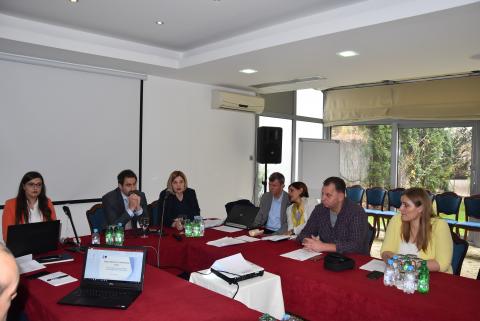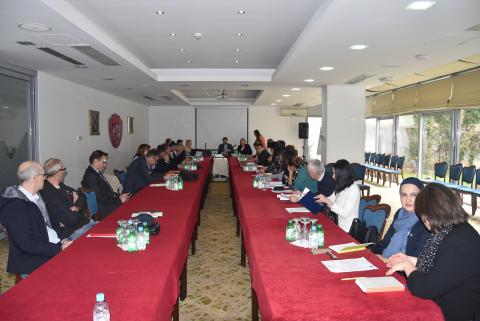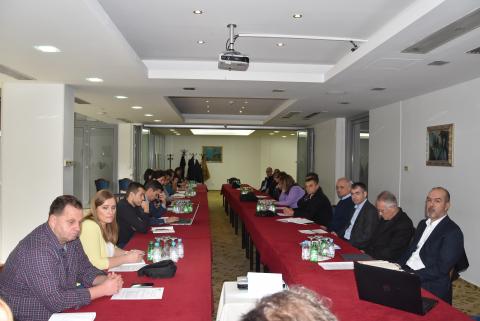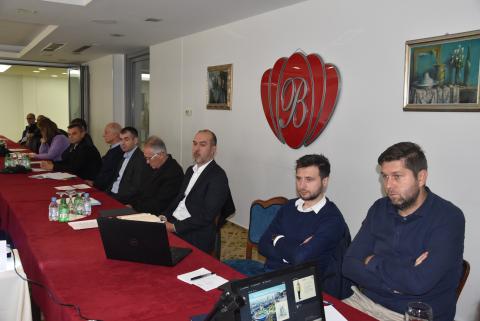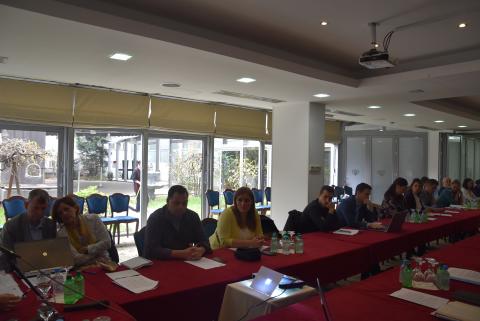A workshop within the framework of the "Feasibility Study on Expansion and Improvement of Remote (Central) Heating in the Sarajevo Canton", was attended by representatives of numerous institutions and companies in charge of this area as well as the environmental protection area in the Sarajevo Canton and Bosnia and Herzegovina.
The Study presents the creation of a long-term strategy for the development of the district heating system, and it was started with the aim of providing support to the Sarajevo Canton in undertaking activities to reduce air pollution through the promotion and use of renewable energy sources as well as the improvement of the district heating system.
Representatives of the Ministry of Physical Planning Construction and Environmental Protection of the Sarajevo Canton, Ministry of Communal Economy and Infrastructure of the Sarajevo Canton, Ministry of Economy of the Sarajevo Canton, Chamber of Economy of the Sarajevo Canton, Environmental Fund of the Federation of Bosnia and Herzegovina, Federal Ministry of Environment and Tourism, Institute for Planning of Development of the Sarajevo Canton, The Sarajevo Construction Institute, the City of Sarajevo, the UNDP, Vogošća Municipality, cantonal public utility companies "Toplane", "Sarajevogas", "Bags Energotehnika" and Elektroprivreda, Faculty of Mechanical Engineering in Sarajevo, and consulting companies Enova, Sarajevo and PlanEnergi from Denmark were attended the workshop.
On that occasion, there were presented the results of the technical, financial, economic and environmental analyzes of several proposed scenarios for the improvement and extension of the district heating system in the Sarajevo Canton.
The focus of this workshop were the municipalities of the Sarajevo Canton where the central heating system would be expanded, as well as the possibility of using renewable energy sources such as biomass.
As previously pointed out, the current analysis of the proposed scenarios was focused on the objects of collective housing and public buildings, while in the following period the analysis will also be based on individual fireplaces in the Sarajevo Canton, which represent the biggest challenge in the heating sector.
It was concluded that after a more detailed assessment of the financial costs as well as other necessary analyzes, with an accent on individual fireplaces in the hillside of Sarajevo, an optimum and acceptable scenario will be chosen for the improvement and expansion of the district heating system.
The district heating system of Aarhus in Denmark as an example of good practice in this area was also presented to the participants.
The Study is funded by the Ministry of Environmental Protection, Land and Sea of the Republic of Italy and implemented by the United Nations Development Program.
